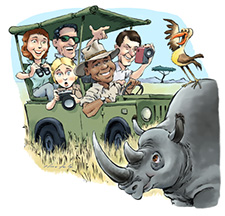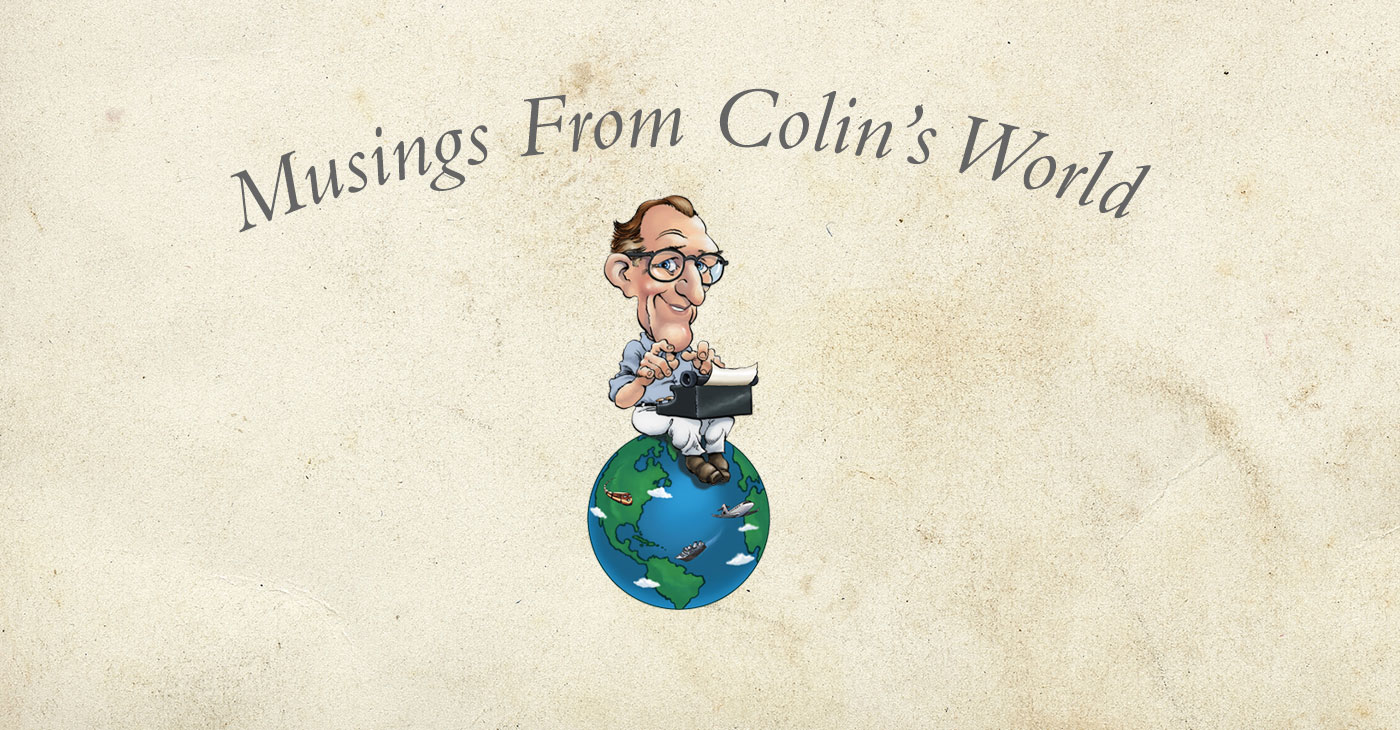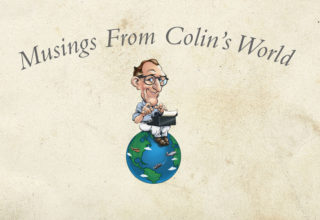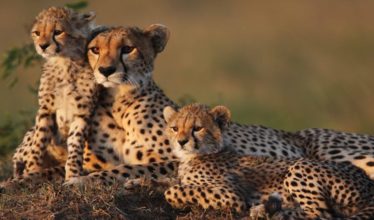Many people in Asia believe that the horn of the rhino ground into powder is good medicine for a variety of ailments. The belief goes back thousands of years, and though there is little scientific evidence to support it, it’s possible that rhino horn may have some health benefits. But there are four and a half billion people in Asia. If even a tiny percentage of them purchase rhino horns it will drive the species to extinction from poachers killing rhinos to rip off their horns and sell them on the black market.
Extinction is a hard concept to grasp – even when it is flying into your face at blinding speed. We today are making decisions for all future generations about whether the rhinoceros will exist as a living creature or just as a picture in books. And the same is true for many other precious animals.
A rhino horn brings $300,000 on the black market. That creates an enormous economic motivation for killing rhinos. Poaching, the word for killing rhinos just to take their horns, has pushed the species close to extinction. Some subspecies of rhino are already gone. Just this year the western black rhino was declared extinct.
The idea that a great species of animal such as the rhino could be killed off entirely to support a misguided belief in the medical value of its horn is absurd beyond comprehension. And yet this is the way it is. It would be monumentally tragic if future generations were denied the existence of rhinos for such nonsensical reasons.
Even the people who buy or sell rhino horn powder will not be well served by the rhino’s extinction. There is no sense to it any way you cut it. And yet this process is in motion, proceeding blindly toward the inevitable extinction of the rhinos if nothing changes. It seems nothing has the power to stop it. The market creates an almost unstoppable force. What countervailing force can possibly prevent the loss of these animals forever?
Who is going to address this issue? Who will take responsibility? Where are the grownups?
The governments of African countries are spread thin as they are trying to tend to the essential needs of their people. Much as they may wish to, they don’t have the resources to stop the onslaught on rhinos.
There are nongovernmental organizations (NGOs) that work to preserve wildlife and other treasures of humanity. But they too have limited resources, not nearly a match for the economic power of the rhino horn market. They cannot provide the manpower to protect the animals in the wilds from poachers, not by themselves anyway.
The way things stand now the one thing that gives hope for saving the rhinos for future generations is tourism. Tourism is the element that can close the loop between governments and NGOs.
Many of the game reserves in Africa are on lands bought by people whose main motivation for buying the land is to protect its wildlife.
But it takes more than the financial wherewithal to purchase the land. That’s just the beginning. It takes a great deal more resources to protect the wildlife from poachers.
Operating a game reserve or a safari lodge is no picnic. The safari business is not for those seeking a fast buck. It is a labor of love and an enormous labor at that. Those who are in that business are there because they love the wilderness and want to protect it.
For most of the game reserves in Africa it is the revenue from travelers who go on safari that funds the conservation initiatives.
With the practices of sustainable tourism gaining traction in the world, the people who live in tourist areas are brought into the operation so they become participants in the economic benefit. When tourism becomes their livelihood and not in conflict with their struggles to survive, they are less likely to be tempted by the financial rewards of poaching.
When the Ebola scare paralyzed the African travel industry last year, the most pressing concern of all was that without the financial support of tourism, many of the protective efforts would collapse, leaving the animals to the poachers.
This same dynamic is working in thousands of places around the world where tourism is creating the economic leverage to preserve the treasures of humanity, and to raise the standard of living of people who live in tourism areas.
The examples are far too numerous to name. The heroes of this grassroots movement are far too many to list.
The economic impact of tourism today is enormous. The World Travel and Tourism Council attributes 9.5 percent of global GDP to travel and says that one of every 11 jobs in the world is travel related. It’s a $7 trillion industry and it’s growing faster than financial services, transportation and manufacturing and practically everything else. The World Tourism Organization says the number of international travelers now is 1.5 billion and growing.
Highclere Castle, the setting for the TV series “Downton Abbey,” is an example of an ancestral aristocratic home that has been preserved by making it into a tourist attraction. The collapse of the old aristocratic social order that the series portrays left many aristocratic homes, mansions and castles unsupportable throughout Europe and beyond. The families who owned them were challenged to find new ways to keep the properties from falling into decay and destruction. A large number of them have been preserved through tourism.
Historic châteaux in France are now museums. Aristocratic homes in Morocco are reincarnated as riads or inns. Fantastic castles in Ireland are now luxury hotels. Many of the barges that once carried the commerce on the waterways of Europe are now tourist experiences.
Tourism provides the economic basis for the preservation of these and countless other such things, and gives the travelers of the world the chance to experience the kinds of beauty and luxury that were once only available to the rich.
Tourism is one of the best industries to kickstart economic activity in developing countries. It puts money directly into the hands of the people who most need it and will spend it, generating more economic activity. It inverts the old practice of passing money between the high levels of government, philanthropic associations and industry and hoping some trickles down.
Tourism is world trade on a person-to-person basis, global commerce for everyman.
The first wave of globalization was multinational corporations trading among each other and elite financial institutions. But tourism democratizes and decentralizes world trade by providing the channels by which rank-and-file citizens can directly do business with the craftsmen, guides, teachers, drivers and other service providers in the places they visit.
Travelers can make contributions directly to people they actually meet. Many tourists today choose to donate their labor as volunteers to help people in other countries in various projects.
The money the traveler pays a hotel is used in part to employ local people to run the operations, working in housekeeping, food service and other hospitality functions. Even the entertainment providers hired by the hotel are part of this economic network. This is money that goes directly into the local economy and into the hands of the people who need it.
It’s obvious by just taking a casual look that human beings did not become the dominant species on earth because they were stronger or faster than other animals, or had sharper teeth or claws.
What humans do have over other animals is our ability to work together and combine our power and intelligence. Through language I can learn from some of the smartest people who ever lived. And through our highly evolved practices of social organization, the human species has become by far the most successful species on earth.
Now practically our only remaining enemy is ourselves. But tourism can help with that too.
Tourism is helping the human species to expand its reach and our capacity to work together around the world. That is no small achievement even though it happens in millions of small steps rather than in one dramatic sweep.
How much value can you place on the understanding between people of different countries that comes through tourism? How can you measure the value of the people of one country getting to know the people of another country, and finding out that people they had thought of as foreigners, or even enemies, are really quite nice, and not so different from themselves?
We travel for our own personal enjoyment and enrichment. But it’s nice to know that as travelers we are taking part in a much broader movement of human evolution and that overall travel seems to have a beneficial effect on the world.
As I leave, let me leave you with this thought from the beloved Mark Twain.
“Travel is fatal to prejudice, bigotry, and narrow-mindedness, and many of our people need it sorely on these accounts. Broad, wholesome, charitable views of men and things cannot be acquired by vegetating in one little corner of the earth all one’s lifetime.”
Amen.
I rest my case.
You will be receiving this as the winter holiday season builds to its climax. In view of that, I wish you the very best of holiday seasons and may we all hope for peace on earth and good will toward men. I look forward to our next meeting.
Until then, I remain:
Your humble reporter,
A. Colin Treadwell


